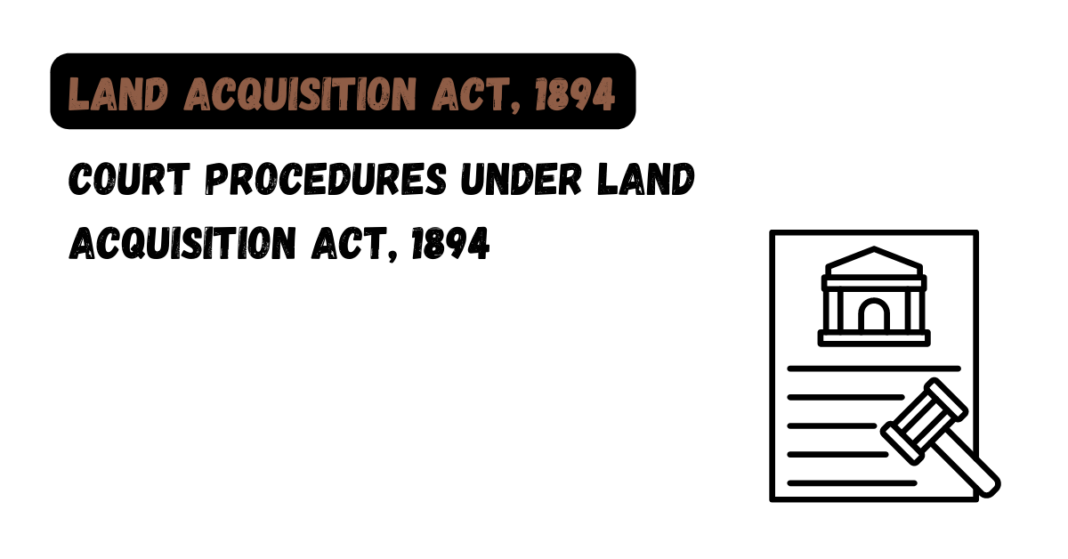The Land Acquisition Act, 1894 provides for several court procedures to safeguard the rights of the affected landowners and ensure that they receive fair compensation for their land.
Important Court Procedures under the Act
- Reference to Court: If the landowners are not satisfied with the compensation awarded to them by the Collector, they can make a reference to the court within six weeks of the date of the award. The court will then conduct an inquiry and determine the fair market value of the land and the compensation to be paid to the landowners.
- Re-determination of Compensation: If the landowners do not accept the compensation determined by the court, they can apply for a re-determination of compensation within three months of the date of the court’s decision. The court will then consider the application and make a final determination of the compensation.
- Appeals: If any party is dissatisfied with the decision of the court, they can file an appeal in a higher court within three months of the date of the court’s decision. The appeal can be filed on questions of law or on the amount of compensation.
- Stay of Proceedings: If the landowner has filed a reference to the court, they may also apply for a stay of proceedings, which will prevent the government from taking possession of the land until the court has determined the compensation.
- Land Acquisition Ombudsman: The Land Acquisition Act, 1894 provides for the appointment of a Land Acquisition Ombudsman to hear complaints from affected landowners regarding the land acquisition process. The Ombudsman has the power to investigate complaints and make recommendations to the government regarding compensation or other matters related to the acquisition.





